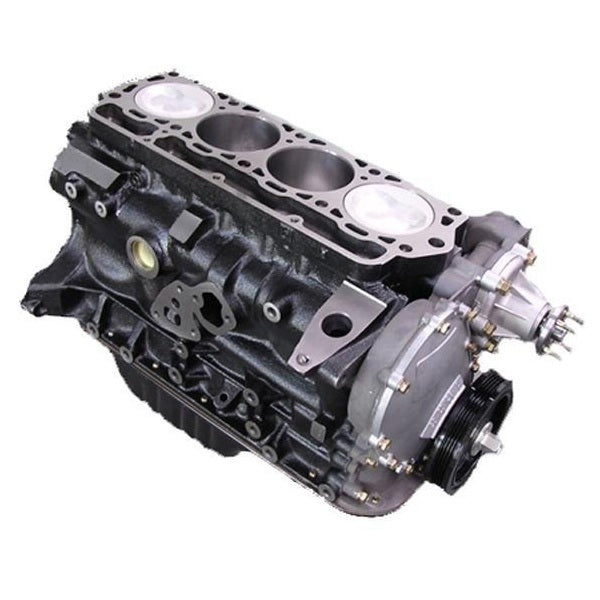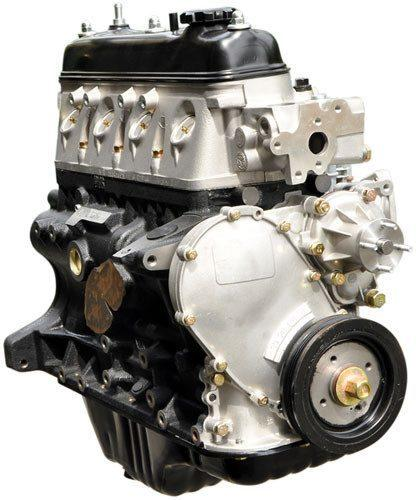Why the 4Y Engine Is Still Popular in Classic and Modern Vehicles
Exploring the Different Kinds Of Engine: Which One Fits Your Needs?
In the quest to identify one of the most suitable engine type for your specific demands, it is critical to assess the distinctive qualities and benefits of each alternative available. Inner burning engines remain to dominate because of their reliability, while electric engines are getting grip for their sustainability. Hybrid engines offer a functional compromise, and diesel engines stand apart for their power popular applications. In addition, alternate fuel engines present ingenious remedies, albeit with specific restrictions. Understanding your priorities will be instrumental in this decision-making process, bring about an expedition of aspects that might affect your choice.

Interior Combustion Engines
Inner combustion engines (ICEs) are the backbone of modern-day transport, powering a huge selection of lorries from vehicles to aircrafts. These engines operate the concept of converting fuel right into mechanical power via a series of controlled surges within a burning chamber. The most usual kinds of ICEs consist of gas engines, diesel engines, and rotary engines, each designed to fulfill particular efficiency and effectiveness requirements.
Fuel engines typically make use of trigger ignition, while diesel engines depend on compression ignition, leading to unique distinctions in gas effectiveness and power result (4y engine). Rotating engines, or Wankel engines, use a compact design and smooth operation, but are much less commonly utilized in mainstream applications
ICEs have actually gone through considerable developments in technology, consisting of the intro of turbocharging and fuel shot systems, which improve overall performance and performance. Despite their efficiency enhancements, ICEs deal with increasing analysis due to their ecological impact, specifically pertaining to greenhouse gas emissions.
Electric Engines
As issues about environmental sustainability and fossil fuel dependence grow, electrical engines have actually arised as a compelling option to internal combustion engines. These engines utilize electrical motors powered by batteries or fuel cells, offering a cleaner and much more efficient ways of propulsion.
One of the key advantages of electric engines is their lowered exhausts. Unlike standard engines that burn fossil gas, electric engines create no tailpipe exhausts, substantially decreasing air contamination and adding to enhanced public wellness. In addition, the efficiency of electric motors typically exceeds that of internal combustion engines, converting a higher percentage of energy from the source of power into useful energy for motion.
Electric engines are likewise noteworthy for their quiet operation, making them perfect for urban settings. 4y engine. The simplicity of their design leads to fewer moving components, which can result in reduced maintenance costs and raised reliability with time
Nonetheless, obstacles stay, including battery manufacturing effects, charging infrastructure, and range constraints. Regardless of these hurdles, the expanding investment in electric lorry innovation and renewable resource resources points towards an encouraging future for electric engines, positioned to play an important role in the shift towards sustainable transport.
Hybrid Engines
Mixing the advantages of both traditional and electric interior combustion engines, hybrid engines represent a versatile remedy in the pursuit for reliable and lasting transport. These engines incorporate a fuel or diesel engine with an electric motor, permitting improved fuel efficiency and minimized exhausts contrasted to standard cars.
Crossbreed engines run in a number of settings, making use of the electric motor for low-speed driving and the interior combustion engine for greater rates or when even more power is required. This vibrant procedure not just enhances fuel economy however additionally adds to a smoother driving experience. Regenerative stopping is one more crucial feature, capturing energy generally lost throughout stopping and redirecting it to recharge the battery.

As consumers significantly focus on eco-friendliness, crossbreed engines stick out as a practical option, supplying an effective balance of efficiency, performance, and ecological responsibility. This adaptability makes them suitable for urban commuting and long-distance traveling alike.
Diesel Engines
Effectiveness and power are hallmarks of diesel motor, which have long been favored for their toughness and gas economic climate. These engines operate the principle of compression ignition, where air is compressed to a high temperature level before fuel is injected, igniting it without the need for trigger plugs. This procedure enables diesel motor to attain greater thermal efficiency compared to fuel engines, translating right into better fuel gas mileage and lower co2 emissions.
Diesel motor are specifically appropriate for durable applications such as trucks, buses, and commercial machinery, where torque and toughness are critical. Their style generally includes more powerful elements to endure the greater stress produced during operation, leading to longer solution life and reduced upkeep prices.

Alternate Gas Engines
While diesel engines have lengthy controlled the landscape of heavy-duty power resources, different fuel engines are gaining traction have a peek at this website as sensible options for a much more sustainable future. These engines make use of a selection of gas, such as compressed gas (CNG), gas, hydrogen, and ethanol, intending to reduce greenhouse gas discharges and reliance on nonrenewable fuel sources.
One substantial benefit of different gas engines is their potential to reduced carbon footprints. For example, CNG engines discharge less contaminants compared to typical diesel engines, making them suitable for city transit systems and fleets looking for to improve air quality. Ethanol, stemmed from biomass, not just reduces exhausts but likewise sustains agricultural economic situations.
Hydrogen fuel cells stand for an advanced growth in this realm, using zero-emission power through a chain reaction in between hydrogen and oxygen. Challenges such as facilities growth and production costs stay obstacles to extensive adoption.
Verdict
Internal combustion engines provide reliability, while electric engines focus on sustainability and lowered upkeep. Hybrid engines combine the advantages of both, enhancing efficiency, whereas diesel engines provide superior power and torque for sturdy applications.
Crossbreed engines use a flexible compromise, and diesel engines stand out for their power in requiring applications. The most typical kinds of ICEs consist of gas engines, diesel engines, and rotary engines, each made to fulfill certain performance and performance requirements.
Unlike standard engines that melt fossil gas, electric engines produce absolutely go to this website no tailpipe discharges, considerably lowering air contamination and contributing to boosted public wellness.Hybrid engines run in a number of modes, using the electric find out here motor for low-speed driving and the inner combustion engine for higher rates or when more power is required. Hybrid engines incorporate the benefits of both, enhancing performance, whereas diesel engines offer superior power and torque for heavy-duty applications.